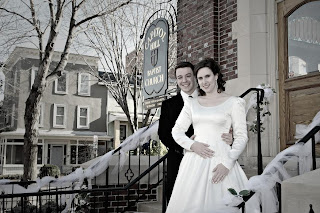Rereading: The Call of the Wild
 The sure mark of an unliterary man is that he considers "I've read it already" to be a conclusive argument against reading a work.
The sure mark of an unliterary man is that he considers "I've read it already" to be a conclusive argument against reading a work.~ C. S. Lewis
If you go looking for a copy of The Call of the Wild, you'll have the greatest chance of finding it in the children's section of your local bookstore. In fact, though I somehow avoided reading this book as a child (probably too caught up in Nancy Drew), I first encountered it not in an American Literature class but in a Children's Literature course. I remember being appalled by the philosophy. And completely taken with the story.
But, Miss Ruffner, that's a kids' book. No, dear, you may think it's a kids' book; it's anything but. London expertly weaves the philosophies of Darwin and Nietzsche into his naturalistic tale of a domesticated dog adapting to the rugged north. I suppose that's why I've always believed fiction to be perhaps even more powerful than non-fiction. It's easy for my students (and for me) to find the problems in Darwin and Nietzsche's views and to dismiss those views. But give those same people a good story, a story of a dog who's stolen from his home, who's thrown into a harsh and unforgiving environment, who adapts and adjusts to that new world by learning to survive in any way possible, who finds within himself the natural instinct to conquer and lead - well, then it's not so easy to "dismiss" these philosophies. We are firmly on Buck's side. We rejoice with him as he learns to flourish in the wild. We're sad when he's beaten. We're thrilled when he proves his great love for John Thornton. And we're more than satisfied at the end to see this dog take his rightful place in the wild.
I've read much of this book out loud to my 11th graders this year. I heard the laughs, the gasps, the small sounds of sympathy from the students as I read. I'm thrilled that they find this story as compelling as I always have. And I don't want to destroy that mystery. Though we will certainly discuss (and have been mentioning all along) the philosophies London weaves into the story, I also want my students to learn to resist the impulse to "neatly package" a writer into categories of ideas. A truly good story has to be more than simply an "idea" with characters and a plot pasted on top. And so I enjoy rereading The Call of the Wild, a book informed by unbiblical philosophies and yet whose story I find irresistable.
That's the mystery of common grace.
And not only did he learn by experience, but instincts long dead became alive again. The domesticated generations fell from him. In vague ways he remembered back to the youth of the breed, to the time the wild dogs ranged in packs through the primeval forest and killed their meat as they ran it down. It was no task for him to learn to fight with cut and slash and the quick wolf snap. In this manner had fought forgotten ancestors. They quickened the old life within him, and the old tricks which they had stamped into the heredity of the breed were his tricks. They came to him without effort or discovery, as though they had been his always. And when, on the still cold nights, he pointed his nose at a star and howled long and wolflike, it was his ancestors, dead and dust, pointing nose at star and howling down through the centuries and through him. And his cadences were their cadences, the cadences which voiced their woe and what to them was the meaning of the stiffness, and the cold, and dark.
~ from Chapter Two, The Call of the Wild


0 Comments:
Post a Comment
<< Home